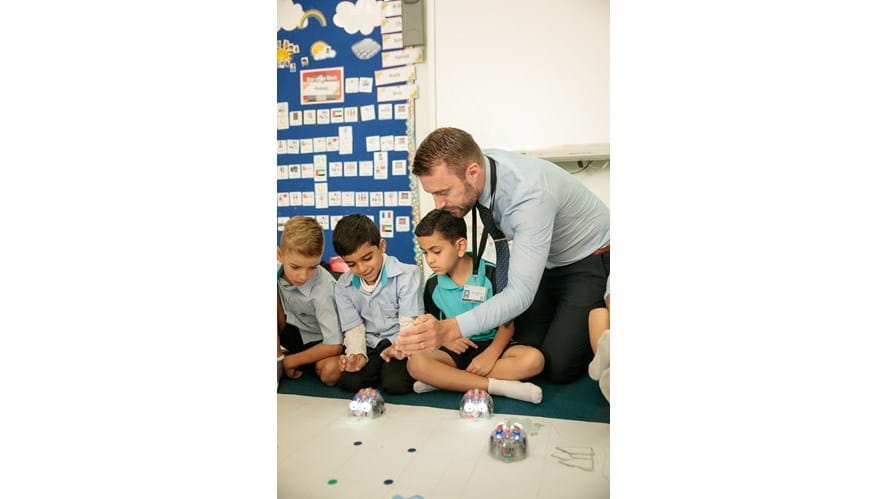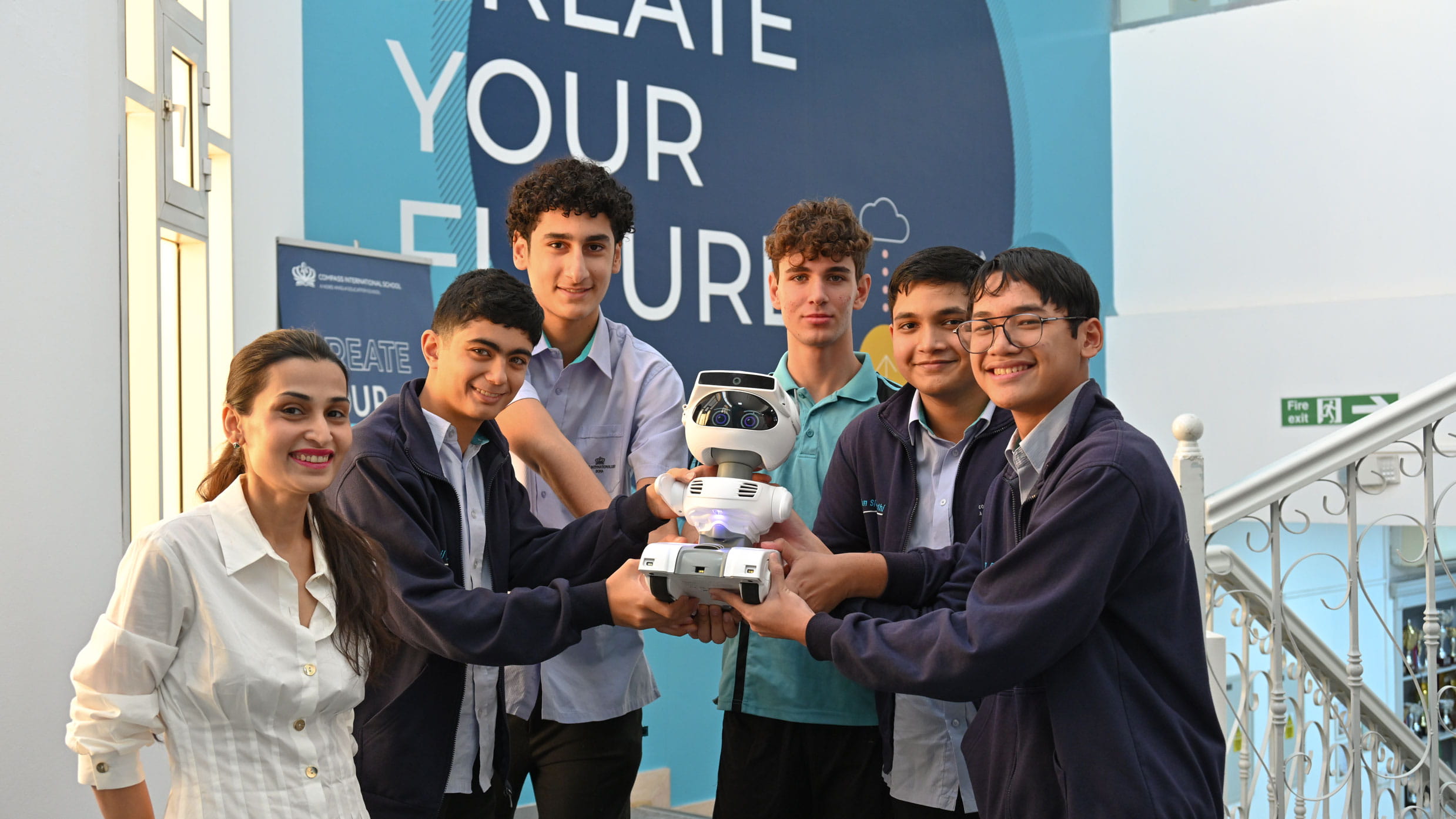People Make the Future - Not Machines Children are precious creatures with very individual needs and abilities that can be drawn out through intuitive teachers. The benefits of social contact and our desire to pass on knowledge will need to be at the forefront of education to enable children to flourish. As well as a place for academic success, the school environment should be one of boundless human interactions for healthy childhood development.
Technology has been infiltrating and changing all areas of our lives, often exciting us with promises of simplifying processes, making daily life easier within our homes, cars, the workplace and interests. Smart phones and permanent Internet access are now an integrated part of our normal day. However within education, technology has been knocking at the door with possible solutions most of which have acted as a support function to a school, but no platform has managed to break into the education market with major success reported and threatened the teachers role within a school. The current perceived benefit of these platforms has been more of an add-on or a luxury to the pupil’s school experience. The area which has the greatest potential to benefit from some of the learning platforms would be the 264 million children who do not have access to education*1.
The EdTech industry has learnt that the older ‘factory model’ of education technology software is not working as well as expected, and a new wave of intuitive start ups is emerging, making Edtech set to be the next big growth industry. With major players like The CZI (Chan Zukerberg Initiative) working on education platforms such as the Summit Learning Platform, progression is coming in a form that could radicalise the industry. These platforms are showing a technological leap from the previous ones in terms of further AI development and integration, which can let a machine learn about a pupil and develop personalised tuition plans, have the ability to change dialect (following a study that found that when speaking to a child using the child’s local dialect helps), allow children to work at their own speed and provide personalised pupil feedback. These advancements offer a more personalised service and would mean even the most accomplished teacher would not have the time to offer this individualised service that EdTech could potentially offer. The role of a teacher could be changing into more of a mentor for the pupil, someone to aid and provide motivation, further explanation, encouragement and become facilitators of learning. However is there a price to pay?
A child’s fundamental need is to be noticed, listened to, praised, respected and shown compassion. These are all essential parts of schooling and parts of the teacher’s role. Good schools go further and offer more. At Compass International School, for example, they believe that standards in schools should not be measured purely on academic attainment. The one gift that technology cannot give is possibly the most important part of schooling and focused on how young people learn to be cooperative, supportive and compassionate adults. If we really want to have educated people in the world, we must remember the values that we aim to impart to our young children. We teach aspects such as integrity, tolerance, leadership not through formal lessons with examinations at the end, nor through an app on an i-Pad. Rather, we teach these and other skills of teamwork, respect and self-reliance in the way that we engage with the impressionable minds of students.
We are seeing so much of today’s technological advancements that are meant to be connecting people end up actually having the opposite effect with disastrous consequences, especially in children. They can suffer from feelings of isolation, depression and loneliness. What this has shown us is online social connections that are meant to be filling a void are actually exacerbating the feelings of social isolation, so an introduction of technology in the classroom should be met with some caution to not produce socially inept children who not only lack skills that would naturally be learnt in lessons with teachers but also feel disconnected with their peers, teachers and in essence, the school. It is all about creating the right balance of real-life activities with real people as well as using technology to stimulate and simulate the development of the child.
Education Technology, however advanced and integrated into a school, will not be able to take the place of human relationships made between a pupil, teacher and the parent. Humans are inherently social creatures and with technology unable to fill that social void, it’s not the solution that people were hoping for. Technology is bound to have its place within a school and will, over time, integrate further into a child’s education. However, a teacher’s wisdom, compassion and ability to impart knowledge in a way that only human to human interaction allows for will always be a necessary part of schooling. It is through human interaction that children learn to work with others, develop social skills and build friendships. Teachers have the special ability to inspire curiosity, build relationships and leave fond childhood memories of teachers that will last. Think about your own youth and who inspired you. Most people when asked this question talk about their parents or their schoolteacher.
Children are precious creatures with very individual needs and abilities that can be drawn out through intuitive teachers. The benefits of social contact and our desire to pass on knowledge will need to be at the forefront of education to enable children to flourish. As well as a place for academic success, the school environment should be one of boundless human interactions for healthy childhood development.
Dr Terry Creissen OBE MBA MA FCIM FRSA
Executive Principal
Compass International School Doha
*1http://www.dw.com/en/unesco-264-million-children-dont-go-to-school/a-41084932








